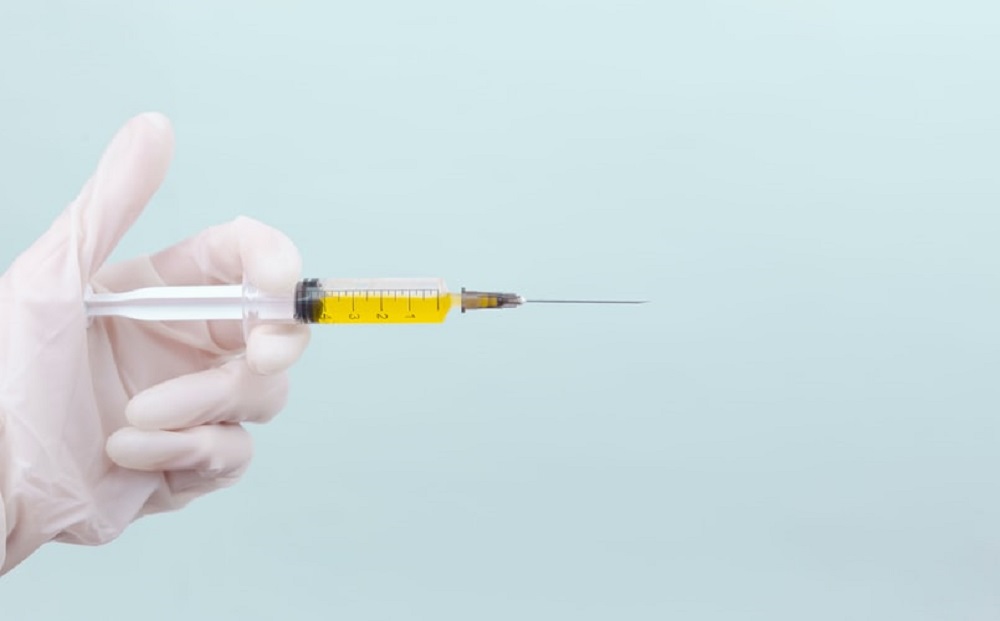Whilst the Covid vaccination rollout continues to help protect the more vulnerable adults from the virus, tests of the vaccine have only recently got under way in some older children.
As schools started their return as we gradually come out of lockdown teaching unions said they were dismayed staff had not been prioritised.
Neil Leitch, chief executive of the Early Years Alliance said: “With Covid cases in early years settings continuing to rise sharply, it is absolutely critical that all those working in nurseries, pre-schools and childminding settings, along with other education colleagues, are given the protection they need to continue doing their jobs as safely as possible.”
But unlike adults, children are unlikely to be getting the vaccine anytime soon.
Trials have started on a small group of children aged six to 17 to see if the AstraZeneca gives young people a good level of immunity to Covid-19.
Children were recruited for the trial via London’s St George’s University Hospitals as well as Oxford University and hospitals in Southampton and Bristol.
Dr Catherine Cosgrove, consultant in infectious diseases and acute medicine at St George’s in Tooting explained what the tests in 300 children could teach us.
She said a small number of children have needed hospital treatment for Covid – there were more than 700 of them in the first wave. Many were children with pre-existing conditions which made them more susceptible to the virus which affects the lungs.
And under 100 children were affected by a rare new inflammatory condition called PIMS-TS.
It often occurs a few weeks after Covid but some children have needed to go to ITU with multi-organ failure.
“It is therefore important to establish the safety and immune response to the vaccine in children and young adults as some of them may benefit from vaccination,” said Dr Cosgrove.
NOW READ: Nearly 140,000 Londoners are experiencing ‘long Covid’
And Professor Paul Heath, who is the Vaccine Institute’s director at St George’s said the rigorous tests to see how effective the vaccine is in children and young people will help scientists see how useful it could be for the under 16s.
Children in the trial are getting the same dose as adults. There is currently no data on the use of the vaccine on children and under 18s which would be essential before the regulators at the Medicines and Healthcare Products Regulatory Agency (MHRA) could green light its use for children.
Professor Heath said: the adult trial, which was also carried out at St George’s, “found that the vaccine is safe, produces strong immune system responses and has excellent levels of protection in all adults.”
The trial includes 240 children who will get the vaccine, whilst 60 young people will be given a vaccine for meningitis, mirroring the tests scientists carried out in 200,000 adults.
The tests build on the previous trials which showed the vaccine is safe and produces strong immunity for adults and has high efficacy,
Scientists said they are doing the trial now – the first in the six to 17 year old group – because they are not sure about the role that children play in transmitting the disease .
And the first tests are being done in older children in the group.
“But it is likely that vaccination will help in slowing the spread of the disease and it may be possible that vaccinating children will help with this too” said Prof Heath.
They expect the vaccine will be effective in older teenagers as there are few differences between older teenagers and young adults.
“There is no reason at the moment why we don’t expect it to be effective in younger children too,” he said.
Andrew Pollard, Professor of Paediatric Infection and Immunity, and Chief Investigator on the Oxford vaccine trial, said: “While most children are relatively unaffected by coronavirus and are unlikely to become unwell with the infection, it is important to establish the safety and immune response to the vaccine in children and young people as some children may benefit from vaccination.”
The trials are designed to understand whether the vaccine could be used in the future in some children, after the lengthy time they have spent away from school during three lockdowns .
Oxford Vaccine group’s paediatrician and clinician-scientist Rinn Song said: “The Covid-19 pandemic has had a profoundly negative impact on the education, social development and emotional well-being of children and adolescents, beyond illness and rare severe disease presentations.”
The trials could help scientists learn more on children’s immune response to the vaccine to see if they could “potentially benefit from inclusion in vaccination programmes in the near future,” he said.
For the latest headlines from the City of London and beyond, follow City Matters on Twitter, Instagram and LinkedIn.







